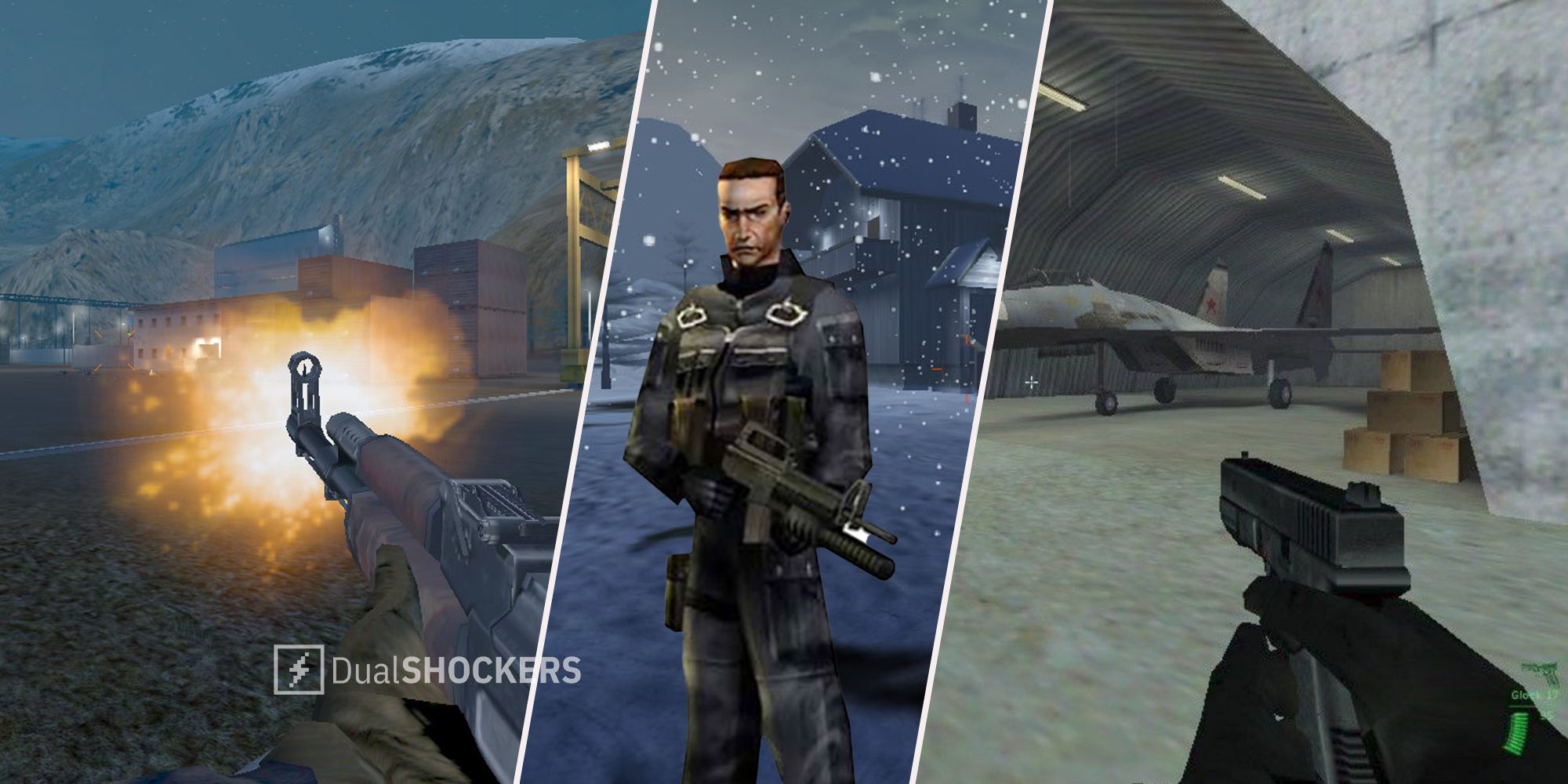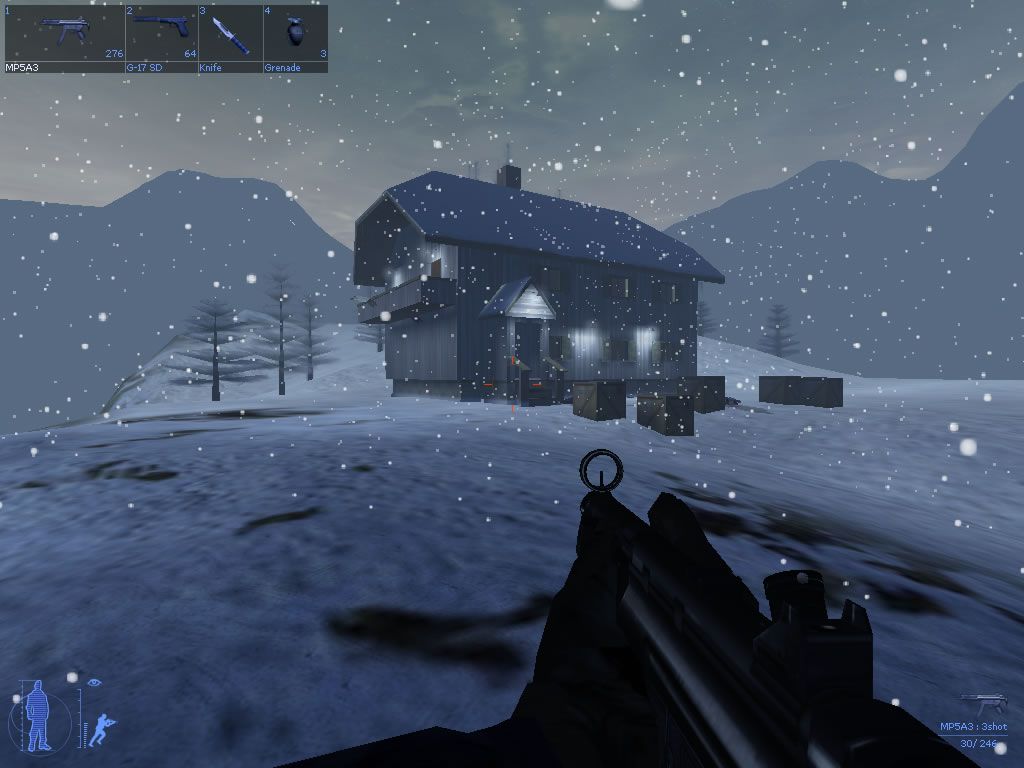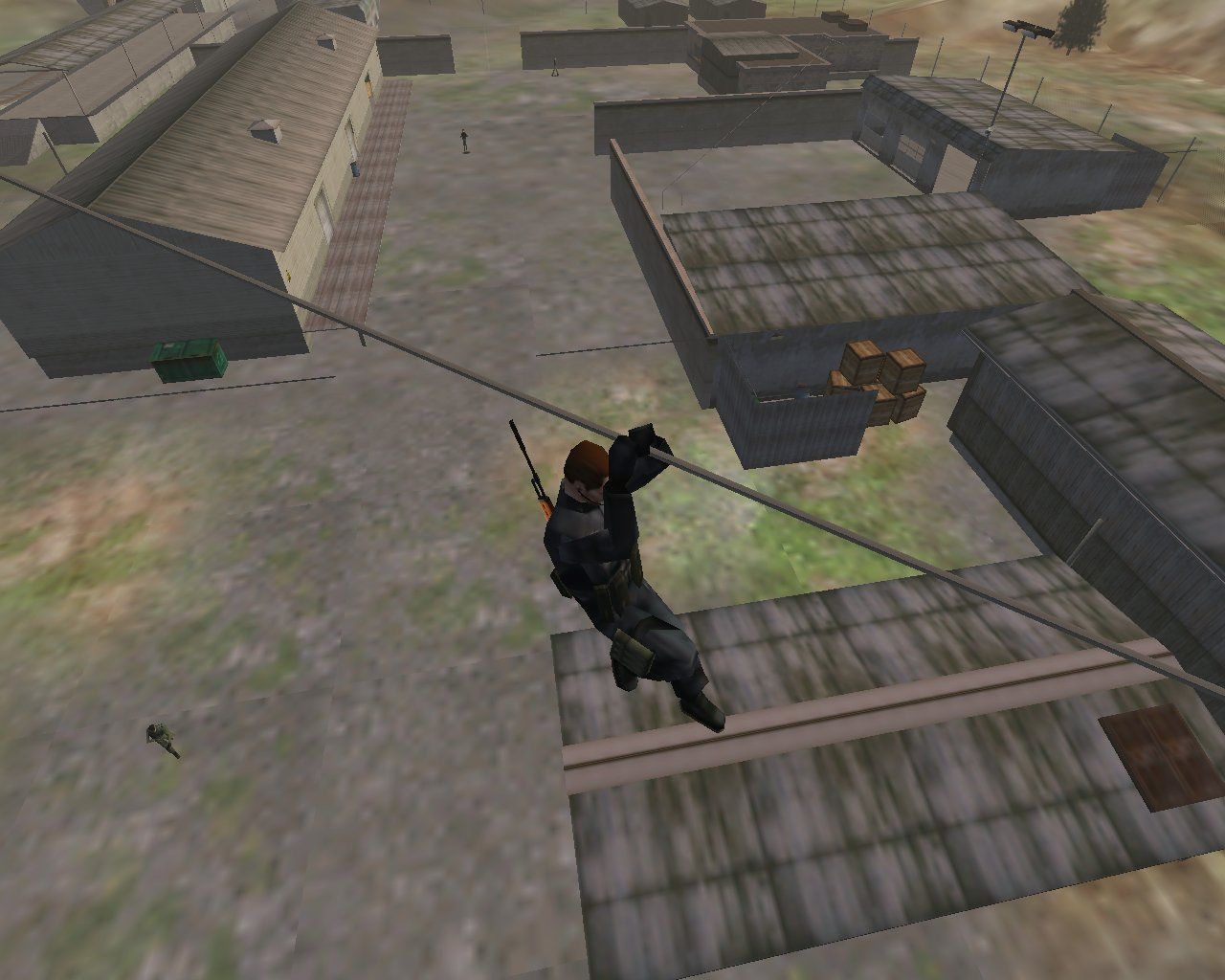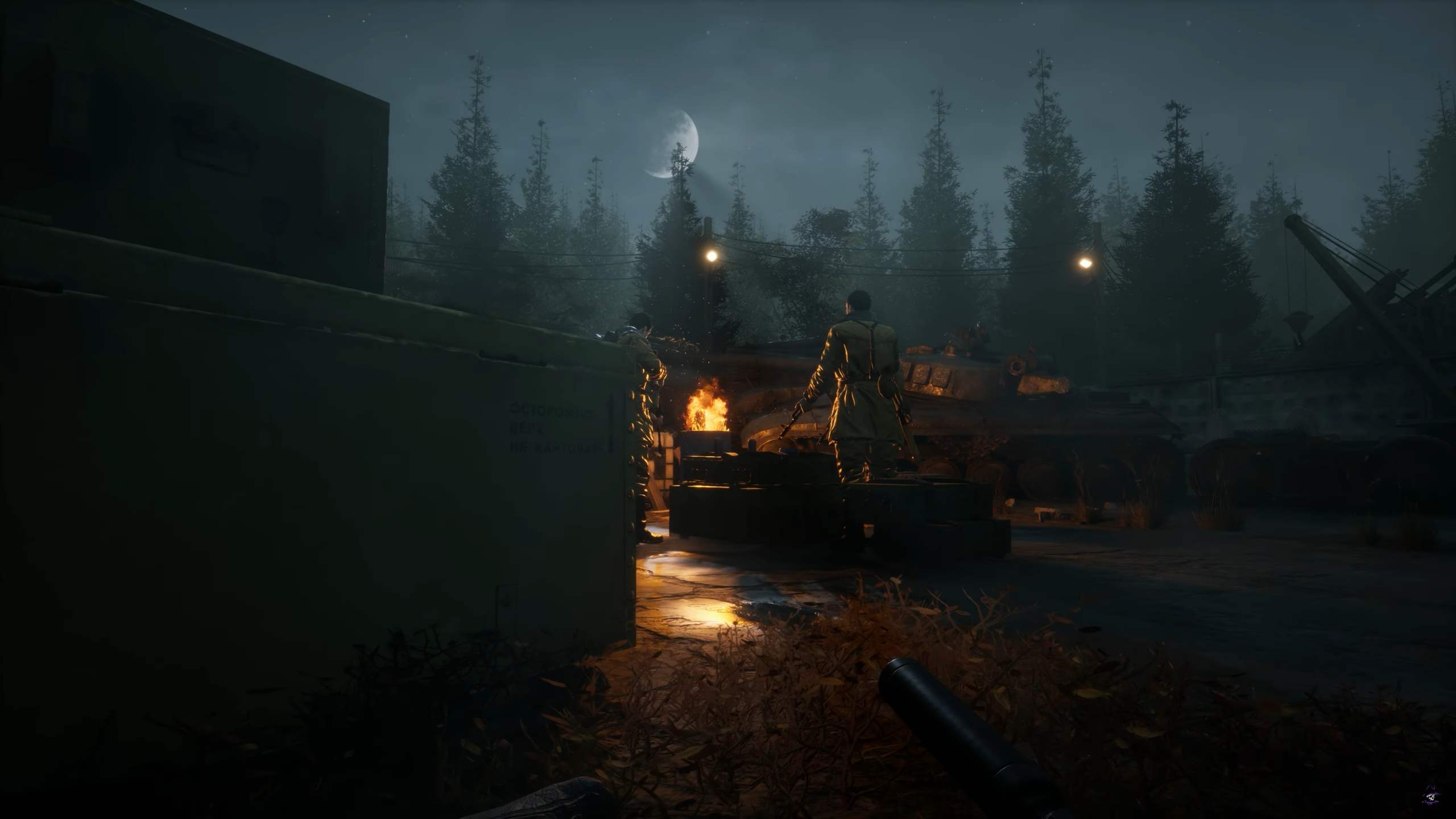Just the other day, a gameplay trailer for a game called IGI Origins was revealed, giving me flashbacks to a more innocent time in first-person shooters. Origins will mark a return for the IGI series after a 20-year hiatus, and got me reminiscing about the remarkably open level design and adventures of the original game’s balding protagonist David Llewellyn Jones (the unabashed Welshness of his name is something that, sadly, never gets addressed).
Project IGI (which stands for ‘I’m going in’) wasn’t exactly a great game, but it took some bold (as well *tsssst* bald) steps into new territory for first-person shooters. It did Far Cry’s whole ‘tackle the base how you want’ thing a good few years before Far Cry even existed. You’d scout a base from afar, clamber over fences and reel yourself down ziplines, then procure your objectives via stealth or all-out gunplay (or, as the case would often be, diligent stealth before all shit hits the fan and you have no choice but to shoot your way through). There was no manual save system or mid-mission checkpoints in the game, forcing you to live with your mistakes (and the consequences of a somewhat iffy stealth system).
Back in 2000, first-person shooters were yet to fully emerge from their rusted corridors and murky nether-spaces. Yes, Half-Life had come out a couple of years earlier, showing that you could tell interesting stories within the format, but the vast majority of games in the genre were very much linear story-light affairs.
On the other side of the FPS genre were tactical shooters like Rainbow Six and Delta Force, which allowed you to tackle a level from various angles, plan your approach, and other possibilities to cater to military nuts. Some of these games were great, but they were so committed to realism that you never got that playfulness – that cinematic ‘special agent’ feeling – from them. They were always way too serious for that kind of tomfoolery.
In 2000, Project IGI was one of the first games to blend the freedom of approach of those tactical shooters with the one-man army stylings of more traditional shooters. The result was a game that was pretty much a proto-Far Cry, where you’d emerge from the foliage onto a base in the distance, whip out your binoculars, and start figuring out how to get in.
As Mr. Jones, you were transported to various compounds around the Soviet Union, procuring all kind of top-secret militaristic macguffins and diddling with satellites as you tracked down some rogue Russian with a warhead (nope, not Putin, who at the time was just a fresh-faced former KGB lieutenant settling into his first presidency).
These compounds were striking; by the standards of gaming at the time, they looked like vast well-guarded towns, isolated amidst the formidable wilderness of the Russian hinterlands. That sense of ‘I’m going in’ was palpable as you scouted out these vast building clusters – identifying possible entry points, guard towers, and logical places to look for your objective. You then took a deep breath, then descended into the valley to do your derring-do.
That mil-sim DNA was there in IGI – the game was pretty realistic, and damn hard. The guns had serious recoil, your health bar was pathetic, and a complete lack of mid-mission saving meant you needed to be on top form to make it through a level – let alone the whole game (which I never did). Incidentally, the harsh player health bars and clever touches like bullet penetration through walls also featured in Far Cry three years later.
The compounds were surrounded by barbed-wire fences, which had convenient gaps in the barbs at various points that allowed you to climb the fences and hop in from myriad angles (developer Innerloop Studios didn’t quite have the confidence in the design to let you enter and exit from any point, but they were certainly on that Far Cry trajectory).
There was some degree of power fantasy to IGI as well. Enemy bullets may have been damaging, but the braindead AI made them veritable sitting ducks; when you shot someone near them, they’d stand cluelessly by their dead comrades as if they had no frame of reference for the closely related concepts of danger and death, even when it would occur right next to them. Get the Jackhammer gun later on, and you weren’t so far off being a British, balding Doom Guy rampaging around Siberia.
Then there were the ziplines, which sent you soaring through the majestic landscape down towards the compounds (and your probable death as a greeting party of armed guards would swiftly shoot you down at the bottom). These action-movie touches elevated IGI beyond the earnest tactical shooter and towards an idea that wouldn’t be fully actualised until 2003 when Ubisoft made a certain shooter involving a tropical island, a B-movie protagonist, and those weird mutant-monsters that everyone forgets existed in the Far Cry series.
Am I excited for IGI Origins? Bit soon to tell. It’s a completely different development team (the experienced Antimatter Games, who made Rising Storm 2: Vietnam), and all we have to go on is an admittedly well-lit gameplay trailer that shows some cool sneaking around, a couple of stealth kills, and – for some reason – a lot of clambering up and down ladders (because nothing evokes the Special Operative fantasy quite like ladders). What’s certain is that Origins comes from an overlooked series, so they at least have some freedom in how to approach it.
And freedom of approach is a great thing in videogames. Just ask David Jones.




